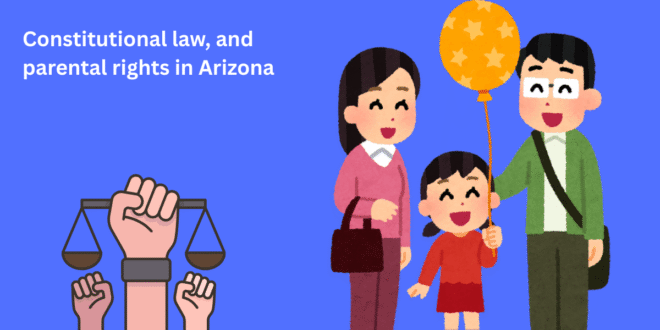Navigating the crossroads of civil rights, constitutional law, and parental rights in Arizona can be overwhelming. Whether it’s protecting your fundamental rights under 42 U.S.C. §1983, understanding how the law intersects with your parental freedoms under state statutes, or seeking guidance when your child’s welfare is at stake, knowing your rights and the law is empowering.
In this article, we break down what a section 1983 attorney civil rights constitutional law Arizona parental rights expert can do for you, how the laws apply, and practical steps you can take to safeguard your family’s rights under both U.S. Constitution and Arizona law.
-
What Is a Section 1983 Attorney and Why It Matters for Parental Rights in Arizona
A section 1983 attorney specializes in legal actions under 42 U.S.C. §1983, commonly known as Section 1983. This federal statute empowers individuals to sue state or local officials who, acting under “color of state law,” violate constitutional rights, such as due process, equal protection, or parental freedoms (Legal Information Institute, Arizona District Court).
For parents in Arizona facing interference, say daycare, schools, or child services, Section 1983 can be a powerful recourse. However, it’s vital to confirm that:
- The defendant was a state actor acting under color of law.
- A constitutional right has been violated.
- You meet procedural requirements such as the statute of limitations (Arizona’s two-year limitation applies) (GovInfo).
So, when you search for section 1983 attorney civil rights constitutional law Arizona parental rights, you’re looking for an expert who understands both the federal grounding and its application here in Arizona.
-
The Legal Landscape: 42 U.S.C. §1983 and Arizona’s Parental Rights Protections
42 U.S.C. §1983: Federal Civil Rights Tool
Section 1983, rooted in the Ku Klux Klan Act, allows individuals to be compensated if a state actor deprives them of constitutional or federal statutory rights. Its broad application includes police misconduct, wrongful arrests, or breaches of parental rights. Courts have reinforced, both at the federal and state level, that procedural fairness and due process must be maintained.
For instance, Santosky v. Kramer held that evidence for termination of parental rights must meet the “clear and convincing” standard, reflecting the high constitutional threshold for interfering with parental bonds.
Arizona’s Parental Rights: The Parents’ Bill of Rights
Arizona law explicitly protects parental authority. A.R.S. §1-602—often referred to as the “Parents’ Bill of Rights”—closes the gap when parents feel government intrusion into their rights to direct education, moral upbringing, and health decisions for their minor children. This state statute underscores that in Arizona, parental rights are fundamental and should only be curtailed under clear legal justification.
-
Key Court Cases: How the Law Intersects with Parental Rights
Troxel v. Granville – U.S. Supreme Court
In Troxel v. Granville (2000), the Court reaffirmed that parents have a fundamental liberty to raise their children free from undue interference, and courts must presume that fit parents act in their child’s best interest.
Santosky v. Kramer – Burden of Proof in Parental Termination
Santosky v. Kramer (1982) established that termination of parental rights must meet a clear and convincing standard—not just a preponderance of evidence—to abide by due process.
DeShaney v. Winnebago County
This case (1989) held that the state has no constitutional duty to protect individuals from private violence unless there’s a “special relationship” (e.g., custody). It limited Section 1983 claims based on omission alone.
In re Termination of Parental Rights as to B.W. – Arizona Supreme Court (2025)
This recent Arizona Supreme Court ruling clarified what constitutes “just cause” when determining abandonment in parental rights termination under A.R.S. §8-531. The Supreme Court reversed the termination order, emphasizing that courts must assess whether the parent’s good-faith and reasonable belief precluded normal parental relationships.
-
How a Section 1983 Attorney in Arizona Defends Parental Rights
Federal Protections
When your family’s constitutional rights—like due process or equal protection—are threatened by government actors in Arizona, a section 1983 attorney civil rights constitutional law Arizona parental rights specialist can:
- Navigate procedural rules like Arizona’s two-year statute of limitations for Section 1983 claims.
- Frame your claim around constitutional principles supported by precedents like Santosky, Troxel, and DeShaney.
State Rights Preservation
These attorneys also help assert your parental rights under A.R.S. §1-602, such as:
- Right to direct education, moral upbringing, and healthcare.
- Defending against unjust recording or surveillance in schools.
- Upholding parent-first considerations when state interventions are proposed.
-
Common Scenarios Where This Expertise Matters
- Child Protective Services or School Interference
Suppose Arizona’s DCS takes steps to limit your parental access without following clear statutes—or schools collect biometric data or recordings without parental consent—then both A.R.S. §1-602 and §1983 could offer layered protections. - Wrongful Termination of Parental Rights
If a termination proceeding lacks clarity, or your efforts to maintain contact were reasonable—as clarified in B.W.—a section 1983 attorney civil rights constitutional law Arizona parental rights lawyer can argue both federal and state barriers to protect due process. - Education-Based Government Overreach
If your parental decisions about schooling or religious upbringing are overridden without proper cause, Section 1983 and state parental rights laws can be invoked.
-
Practical Steps: What to Do If You Need Help
- Document Everything
Keep records of interactions with DCS, schools, or authorities. Note dates, names, and details. - Act Promptly
With a two-year deadline for Section 1983 claims in Arizona, early engagement with an attorney is essential. - Consult a Specialized Attorney
Look for a lawyer who explicitly focuses on Section 1983, constitutional law, and Arizona parental rights. They can assess both federal and state pathways. - Understand Standards and Defenses
Ask your lawyer how burdens like “clear and convincing” evidence (Santosky) or “just cause” (B.W.) apply in your situation.
Conclusion:
Your Rights Are Protected. Know How to Defend Them
The intersection of section 1983 attorney civil rights constitutional law Arizona parental rights reflects a powerful alliance of federal and state protections for families in Arizona. From constitutional guarantees like due process to Arizona’s explicit statutory parental rights, you have a legal foundation to defend your family.
If you’re facing governmental interference, school overreach, or potential termination of parental rights, understanding these laws and consulting the right attorney can make all the difference.
 Edutarbiyah English Blog of Parenting and Tarbiyah
Edutarbiyah English Blog of Parenting and Tarbiyah




I believe other website proprietors should take this internet site as an example , very clean and good user friendly design and style.